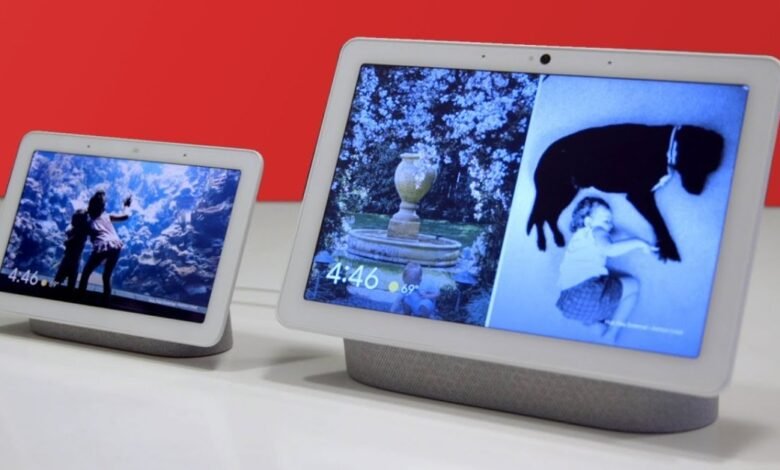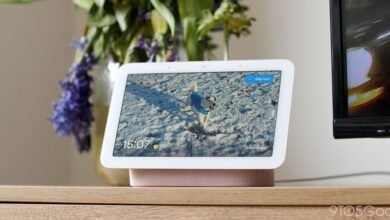Google Teases New Nest Hub Release

▼ Summary
– Google’s Anish Kattukaran confirmed the company remains committed to smart displays and will share news about them soon.
– Smart displays are considered an ideal form factor for Google’s Gemini AI platform due to their microphone, speaker, screen, and camera capabilities.
– Amazon has launched new Echo Show smart displays with enhanced processors and local data processing for its Alexa Plus AI assistant.
– Google’s existing Nest Hub devices, last updated in 2021, feel outdated and not competitive as flagship AI home devices for 2025.
– Smart displays may find their primary use as multi-modal input systems for advanced AI assistants rather than just digital photo frames.
While Google recently unveiled a new smart speaker for its Gemini smart home platform, many were left wondering about the future of its smart displays. Fortunately, Google Home’s Anish Kattukaran has confirmed the company remains deeply committed to this product category, promising news will arrive shortly. This reassurance comes as a welcome development for enthusiasts of the Nest Hub line who have been anticipating refreshed hardware.
Kattukaran elaborated on the strategic importance of smart displays during a recent interview. He described them as an ideal form factor for interacting with advanced AI like Gemini for Home. These devices combine microphones for audio input, speakers for output, and a screen that enhances voice interactions with visual information. He emphasized that built-in cameras add a crucial vision component, creating a truly multi-modal experience. Kattukaran expressed strong belief that the smart display is nearly the ultimate form factor for delivering an exceptional home experience, which is why Google plans to continue its investment in the category.
This perspective is shared by competitors, most notably Amazon. The e-commerce giant just launched two new Echo Show models specifically designed for its upgraded Alexa Plus AI assistant. These displays represent a significant power jump, featuring a new AZ3 Pro processor, advanced edge-based computing, and an Omnisense fusion platform. This technology allows the devices to process data from smart home sensors locally, providing Alexa Plus with richer, more immediate context.
For Google to compete effectively, a new Nest Hub, or more likely, a Google Home Hub, as the Nest brand appears to be phasing out for non-camera and thermostat products, would need to represent a major advancement over its current offerings. The existing Nest Hub, last updated in 2021 with its Soli radar sensor, and the larger, camera-equipped Nest Hub Max are both compatible with the new Gemini for Home platform. However, their older internal hardware prevents them from feeling like true flagship AI devices for the modern smart home.
The Pixel Tablet, released in 2023, was perceived as an initial attempt at a more powerful smart home controller. Yet, it lacked several core features expected from a dedicated hub and has since been discontinued. Historically, the smart display as a concept has faced challenges in defining a compelling use case that extends much beyond serving as a sophisticated digital photo frame. However, their potential is now clearer than ever. As a multi-modal input system for a next-generation, smarter voice assistant, these devices may finally be poised to realize their full potential and become an indispensable part of the connected home.
(Source: The Verge)


